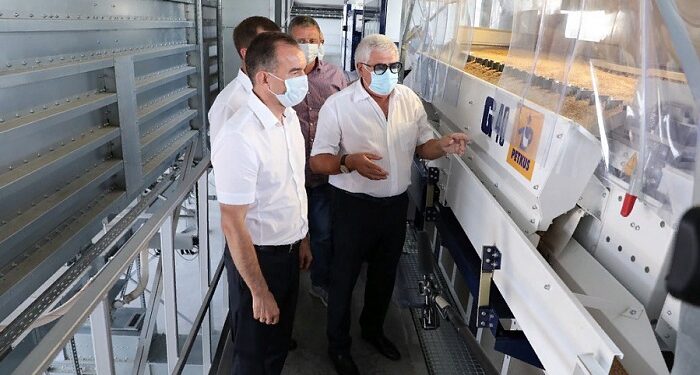In the realm of modern agriculture, efficiency and sustainability are paramount. One crucial aspect of livestock farming is fodder preparation, a process that directly impacts animal health, productivity, and overall farm profitability.
To meet the demands of a growing population and ensure the well-being of livestock, farms are increasingly turning to advanced solutions such as fodder preparation complexes. In this article, we delve into the concept of fodder preparation complexes, their significance, and the benefits they offer to the agricultural sector.
Understanding Fodder Preparation Complexes
A fodder preparation complex is a sophisticated facility designed to streamline the production of animal feed, primarily through the cultivation and processing of fodder crops. These complexes integrate various technologies and processes to efficiently produce high-quality feed for livestock, including cattle, poultry, and swine. The key components of a typical fodder preparation complex include:
Hydroponic Fodder Production: Hydroponic systems enable the cultivation of nutrient-rich fodder crops, such as barley, wheat, and maize, in a controlled environment. By utilizing hydroponics, fodder preparation complexes can produce large quantities of green fodder with minimal water usage and space requirements.
Automated Growing Systems: Fodder preparation complexes often employ automated growing systems to monitor and regulate environmental factors such as temperature, humidity, and light intensity. These systems ensure optimal growing conditions for fodder crops throughout the year, maximizing yields and minimizing resource consumption.
Processing and Packaging Equipment: Once harvested, fodder crops undergo processing to create various feed formulations tailored to specific livestock requirements. Processing equipment within the complex includes grinding mills, mixers, and pelletizers, which transform raw fodder into nutritious feed pellets or meal. Advanced packaging systems ensure the hygienic storage and distribution of feed products.
Quality Control Measures: Fodder preparation complexes implement stringent quality control measures to maintain the nutritional integrity and safety of feed products. This includes regular testing for contaminants, monitoring of nutrient levels, and adherence to regulatory standards governing animal feed production.
Benefits of Fodder Preparation Complexes
The adoption of fodder preparation complexes offers several compelling benefits for livestock farmers and the agricultural industry as a whole:
Enhanced Nutritional Quality: By utilizing hydroponic cultivation methods and precise nutrient management, fodder preparation complexes produce feed with optimal nutritional content, promoting the health and productivity of livestock.
Year-Round Availability: Unlike traditional methods reliant on seasonal crops, fodder preparation complexes can sustain continuous fodder production regardless of climatic conditions or geographical limitations, ensuring a stable food supply for animals throughout the year.
Resource Efficiency: Fodder preparation complexes minimize water usage, land utilization, and energy consumption compared to conventional farming practices, contributing to greater sustainability and reduced environmental impact.
Increased Productivity: With automated growing systems and efficient processing equipment, fodder preparation complexes can significantly increase feed production capacity while reducing labor requirements and operational costs, ultimately enhancing farm profitability.
Risk Mitigation: By diversifying feed sources and reducing dependence on external suppliers, fodder preparation complexes help mitigate risks associated with fluctuations in feed prices, availability, and quality, providing greater resilience to market uncertainties.
Conclusion
Fodder preparation complexes represent a paradigm shift in modern agriculture, offering a holistic approach to feed production that prioritizes efficiency, sustainability, and animal welfare. As the global demand for livestock products continues to rise, the adoption of advanced technologies and innovative solutions such as fodder preparation complexes will play a pivotal role in ensuring the long-term viability and prosperity of the agricultural sector. By embracing these transformative practices, farmers can optimize feed production, improve animal health, and contribute to a more resilient and sustainable food system for future generations.

















